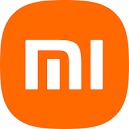The global race for consumer attention is rewriting the rules of marketing. Fueled by surging digital investments, content marketing is on track to become a $2 trillion industry by 2032 a seismic shift that could redefine how brands connect, compete, and grow in the years ahead.
The business world is doubling down on content and the numbers prove it. According to a new report by Precedence Research Dive, the global content marketing market, valued at $413.3 billion in 2022, is on track to hit a staggering $1.96 trillion by 2032, expanding at a robust CAGR of 16.9%.
This explosive growth underscores the rising importance of storytelling in business, as brands race to capture consumer attention across blogs, videos, podcasts, social media, and more.
Digital Momentum Reshaped by COVID-19
The pandemic acted as a turning point for the industry. With physical events canceled and face-to-face engagement restricted, companies leaned heavily on digital platforms to stay connected with customers. From webinars and virtual conferences to interactive social media campaigns, content marketing became the lifeline for brand visibility and customer engagement.
This shift wasn’t temporary it accelerated a long-term transformation. Even as economies reopened, businesses realized that content had become their most reliable bridge to audiences worldwide.
What’s Driving the Surge
Several powerful forces are fueling the industry’s momentum:
• Digital-first consumer behavior: As shopping, entertainment, and communication migrate online, businesses are investing heavily in content to meet consumers where they are.
• Personalization powered by data: With advanced analytics, brands can now deliver tailored, hyper-relevant content that resonates with individual preferences and behaviors, boosting engagement and conversion.
• Omnichannel strategies: From TikTok clips to long-form blogs, companies are spreading their presence across multiple platforms to maximize reach.
• SEO benefits: Search engines reward fresh, valuable content with higher rankings, making consistent publishing a critical competitive advantage.
The AI Advantage
Technology is set to redefine content marketing in the next decade. Tools like AI-driven chatbots, conversational assistants, and platforms such as ChatGPT are reshaping how businesses create, distribute, and optimize content.
These innovations allow companies to:
• Maintain 24/7 customer engagement,
• Generate cost-effective marketing copy,
• Gather and analyze real-time audience data,
• Scale content efforts faster than ever before.
For small and mid-sized enterprises, this democratization of AI means they can now compete with larger rivals by producing high-quality content at lower costs.
Market Segments Leading the Way
• Video marketing continues to dominate, driven by platforms like YouTube, TikTok, and Instagram, where short-form and interactive content thrives.
• Brand awareness campaigns account for the largest share of investment, as businesses prioritize visibility and credibility in crowded markets.
• Asia-Pacific emerged as the top regional player in 2022, thanks to booming e-commerce activity and industries like automotive and electronics adopting aggressive digital strategies.
Challenges in the Landscape
Despite the rapid growth, obstacles remain. A shortage of skilled professionals in data-driven marketing poses a significant bottleneck, especially for smaller firms. The complexity of analytics tools often leaves companies unable to fully capitalize on their content strategies.
Moreover, tightening data privacy regulations such as GDPR and CCPA continue to add compliance burdens, raising operational costs.
The Bigger Picture
Partnerships, product innovation, and market expansions are already reshaping the competitive landscape. For instance, Jack in the Box Worldwide expanded its e-commerce services in 2021 to align with shifting consumer behaviors — a move that reflects the industry’s relentless evolution.
With content marketing poised to nearly quadruple in size over the next decade, the takeaway is clear: brands that invest in creativity, personalization, and technology today will define the leaders of tomorrow’s digital economy.
ALSO WATCH MARKETING EDGE ONTV






Comment
No comments found.